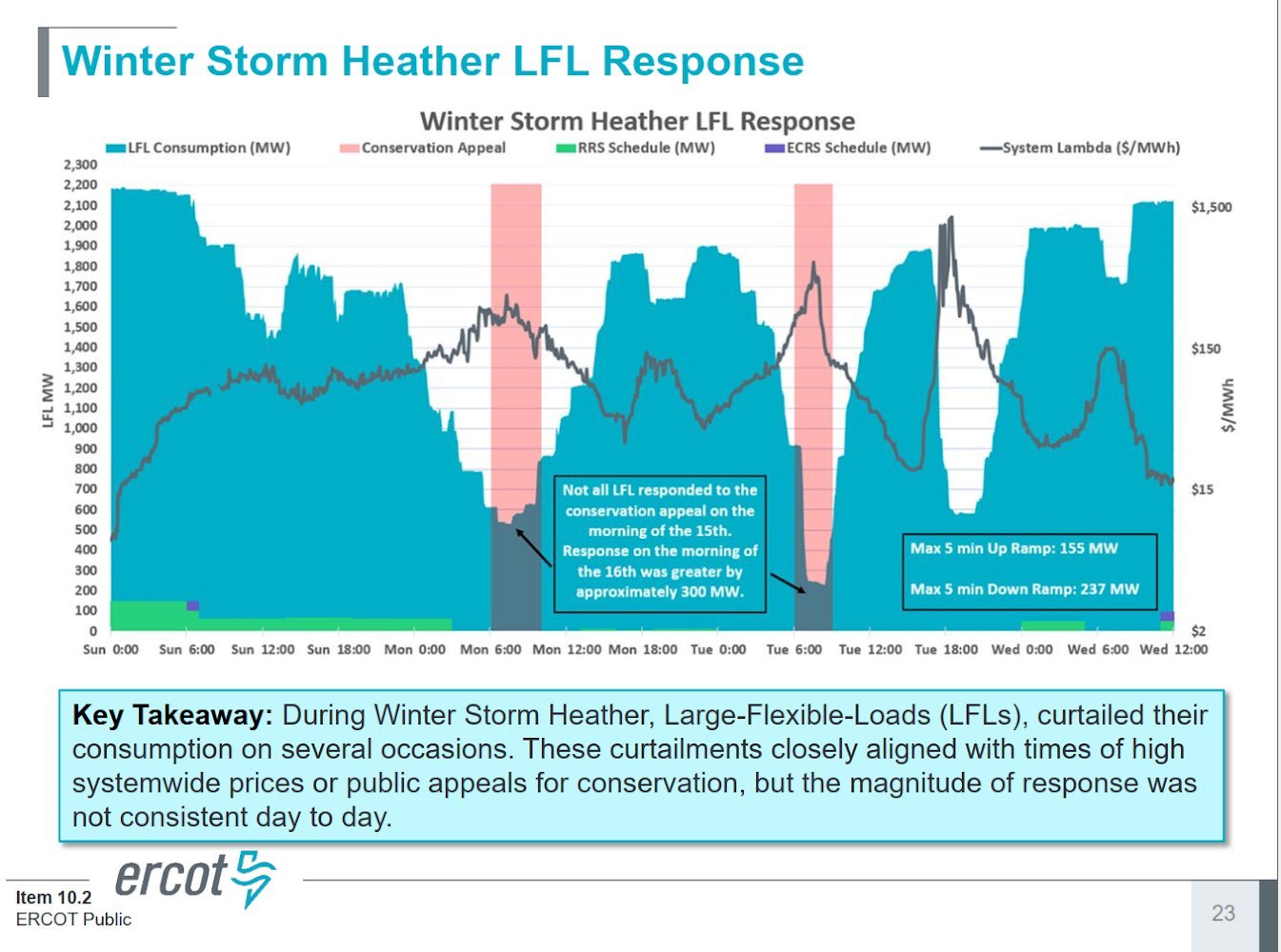

Riot and the Texas Blockchain Council have been granted a temporary restraining order against the EIA and Department of Energy.

Texas Blockchain Council v. Department of Energy
— Pierre Rochard (@BitcoinPierre) February 26, 2024
"ORDER SETTING PRELIMINARY INJUNCTION HEARING in District Courtroom #1, on the Third Floor of the United States Courthouse, 800 Franklin Ave, Waco, TX, on Wednesday, February 28, 2024 at 10:00 AM.
All parties and counsel must… pic.twitter.com/Qu4IMqbIwR
On February 1st, we made you freaks aware of an invasive survey that the Energy Information Administration (EIA) sent out to mining companies in the United States under the guise of ensuring that reliability of the nation's energy infrastructure isn't being materially impacted by bitcoin miners. The registry was attempting to collect information about the location of mining operations (down to the geographic coordinates), their energy providers, the overall percentage of total production that miners were buying from individual electricity producers, the amount of hashrate at each location, and the ASIC they are running at each location. Among other sensitive competitive data.

At the time, I encouraged everyone in the industry to tell the EIA to screw off due to the egregious encroachment on civil liberties the registry represents. Luckily for us, many operators in the industry agreed with this sentiment and Riot decided to push back alongside the Texas Blockchain Council by suing the Department of Energy and initiating a halt on the data collection. Claiming that the Department of Energy did not provide adequate notice before demanding that operators hand over extremely sensitive information to the EIA.

The US District Court for the Western District of Texas granted a 14-day Temporary Restraining Order during which the EIA will not be allowed to force miners to respond to the survey. There is a hearing scheduled for Wednesday morning at 10am Central in Waco, Texas during which Riot, The Texas Blockchain Council, and others like the Chamber of Digital Commerce will put forth the case that the EIA and the Department of Energy are infringing on the privacy rights of miners and using bullying tactics to intimidate a budding industry.
As we said when we first discussed this invasive registry, the EIA and the Department of Energy don't have a leg to stand on. They are claiming that miners are a detriment to the stability of our grid systems and electricity prices. Nothing could be further from the truth. Miners are a boon to our nation's grid systems. Providing utilities and power generators with dependable revenue streams and a demand response mechanism that is unrivaled. This is made clear by data that has been released by ERCOT which shows that miners played a crucial role in ensuring that the grid had an ample supply of electricity at reasonable prices during the abnormal cold front that hit the state in early January.

As it stands today, miners account for ~95% of Large-Flexible-Loads within ERCOT. As you can see from the chart above, miners reduced their electricity usage by ~75% or more during morning demand spikes; the period of time when the temperature is still very cold from the overnight cool down period and people are waking up and turning on their lights, heat, kitchen electronics, and office lights. As a result, more electricity was able to be sent back to the grid to meet the increasing demand and real-time prices fell dramatically from their peak.
This is all made possible due to the fact that bitcoin miners are uniquely suited to respond to changes in demand quicker than any other load on the grid. Mining firmware connected to ERCOT pricing and usage data APIs can take in signals and turn down machines within seconds. Freeing up the electricity miners would have otherwise used to ensure that people can heat their homes at affordable prices. Again, no other load source can react this quickly. There are two reasons for this; the miners are somewhat dumb machines (they only do a few things; produce hashes, send small amounts of data to the bitcoin network, and run internal diagnostics) and they can turn off at a moment's notice without disrupting the distributed bitcoin network. Blocks of transactions are still added to the ledger even when a material amount of hashrate comes off the network. They are just produced a bit slower than the ten-minute block time target until the next difficulty adjustment.
The data is on our side. It will be interesting to see what the District Court in Texas decides on Wednesday morning. We hope that sanity and logic prevail. Though, if it doesn't, the industry should keep fighting back and even refuse to fill out the registry if the Department of Energy decides to move forward with it. If that is what they decide to do, it will be up to the states to stand up for the industry and put the federal government in its place.
Final thought...
Took my son to his first baseball game yesterday. He was more engaged than I was expecting. It was a great Sunday and a great weekend overall.



